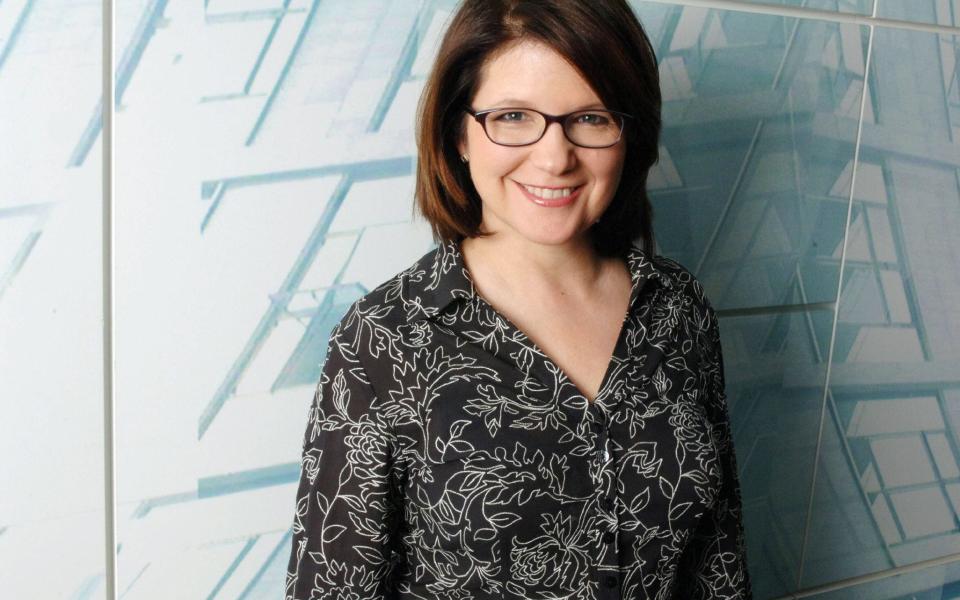Jana Bennett, broadcasting executive who as director of programmes was one of the first women to take a senior role at the BBC – obituary

Jana Bennett, who has died of cancer aged 66, was a high-flying BBC figure tipped as a future director-general when she became the corporation’s second most powerful executive with oversight of four domestic television networks and a programme budget of £1.3 billion.
A petite, driven American with a strong, hustling personality, in 1999 she had succeeded Alan Yentob as director of production, one of the first women to breach the male-dominated upper reaches of BBC management.
During her nine-year tenure as director of television, in charge of all BBC television programming from 2002, she successfully launched several hit formats including Strictly Come Dancing and The Apprentice, comedies such as Gavin & Stacey and period dramas including Cranford.
Jana Bennett had made her name as head of BBC Science, where she developed acclaimed series such as Walking With Dinosaurs, Animal Hospital and The Human Body before returning to America in 1999 as general manager of the Discovery cable channel. But within three years she was back at the BBC as director of television.
In this role she embraced the digital revolution via the launch of BBC3 and other channels and became one of the most significant figures in the development of specialist factual as a popular TV genre. An innovative thinker, she was one of the BBC’s exceptional talents. While never counting Jana Bennett as one of his inner circle, the former director-general John Birt considered her “the guiding force behind programmes of remarkable editorial and technological virtuosity”.

The third of five daughters, Jana Eve Bennett was born on November 6 1955 in Cooperstown, New York State. She attended Bognor Regis Comprehensive School before reading PPE at St Anne’s College, Oxford, and taking a master’s at the London School of Economics.
Joining the BBC as a news trainee in London in 1979, she rose quickly through the ranks, first in current affairs on The Money Programme, Panorama, Nationwide and Newsnight, and then, at the time of the Chernobyl nuclear accident in 1986, in science programming. In 1987 she set up and edited Antenna, one of a rotating series of “thought-provoking programmes designed to make your brain hurt” and which looked at science and technology with a current affairs edge.
In 1990 she became the first woman editor of the BBC2 science strand Horizon and, as the first female Head of Science in 1994, sought to make science programmes more accessible by introducing animal shows for the first time such as Animal Hospital.
Joining the executive board of management, the BBC’s top policy forum, in 1997, she was promoted to head of production, the most senior creative BBC post ever held by a woman. “Auntie succumbed to Girl Power,” exclaimed Broadcast magazine. “Gosh! Whatever next – a gel as dg?!”

Having been appointed director of programmes, she was headhunted by the American factual network Discovery to be its general manager in 1999. Running The Learning Channel (now TLC), Jana Bennett drew on her BBC experience to introduce such successful reality formats as Changing Rooms.
In 2001 she was tipped as the next chief executive at Channel 4, but when she returned to London a year later it was as the BBC’s director of television, overseeing the launch of digital channels including BBC3, BBC4, CBBC and CBeebies and iPlayer. By now one of the most powerful women in British television, she was also responsible for the corporation’s move-out-of-London strategy that created 3,000 posts in Salford.
Under corporate restructuring, Jana Bennett became director of BBC Vision, the in-house production unit and commissioning body, where she helped to launch shows including Sherlock, the revived Doctor Who and Planet Earth, as well as comedies like The Thick Of It and Miranda. Her success came with some unwelcome attention from the press over her £415,000 salary and reportedly extravagant use of her BBC expenses.

After a year as president of BBC Worldwide, the corporation’s commercial arm, she returned to the US in 2012 and for four years worked at A+E Networks’ Biography Channel and Lifetime Movie Network, and from 2015 was president of the History Channel.
Away from the BBC Jana Bennett served as a trustee of the Natural History Museum and the British Library. She was elected a Fellow of the Royal Television Society in 1999 and appointed OBE the following year. Since leaving the History Channel in 2017 she had worked as a media consultant.
With the BBC correspondent John Simpson, she wrote The Disappeared (1986), scrutinising the Argentine military regime at the time of the so-called Dirty War.
In 2019 she disclosed that she was suffering from glioblastoma multiforme, a type of brain cancer, and had become a trustee of OurBrainBank, a cancer research app allowing GBM patients to share their symptoms with clinicians.
She married, in 1995, Richard Clemmow, a former head of BBC News, with whom she had a son and daughter.
Jana Bennett, born November 6 1955, died January 11 2022

 Yahoo News
Yahoo News 